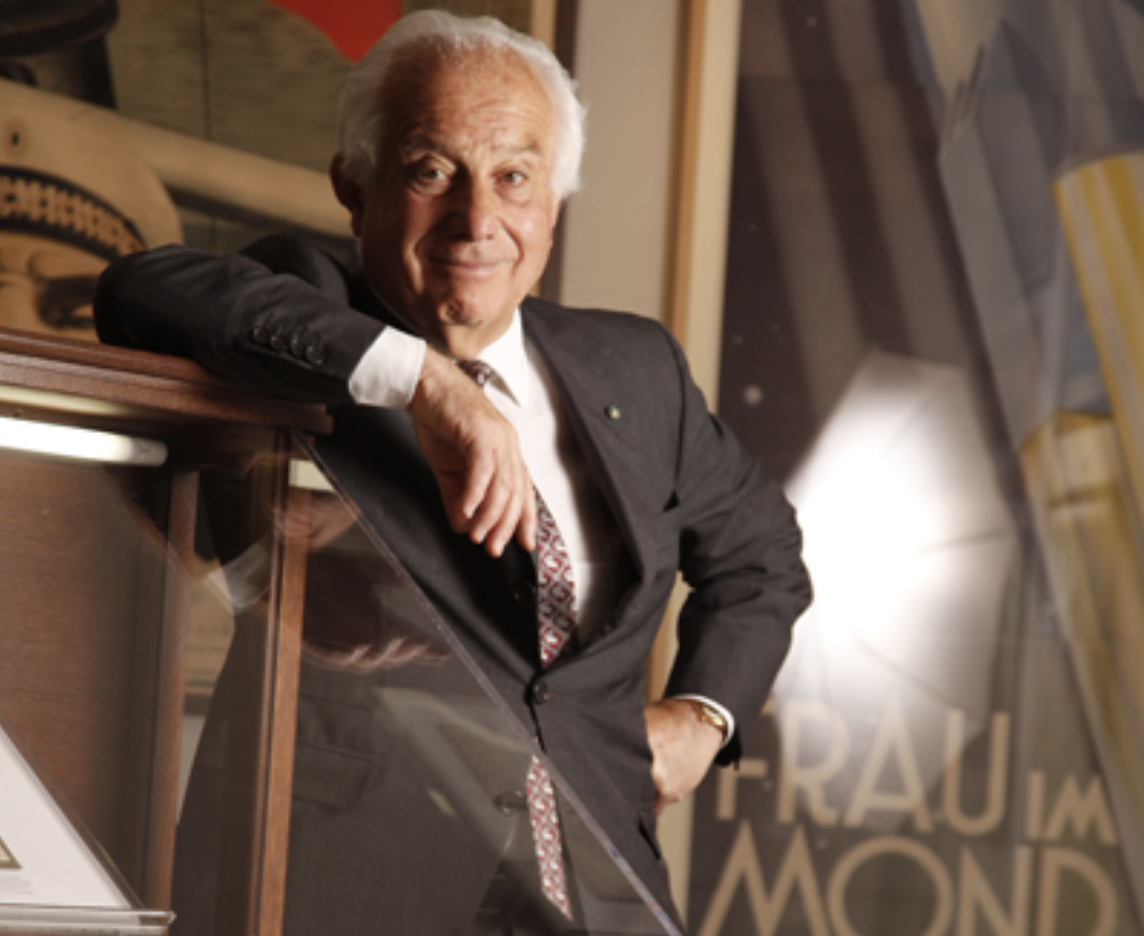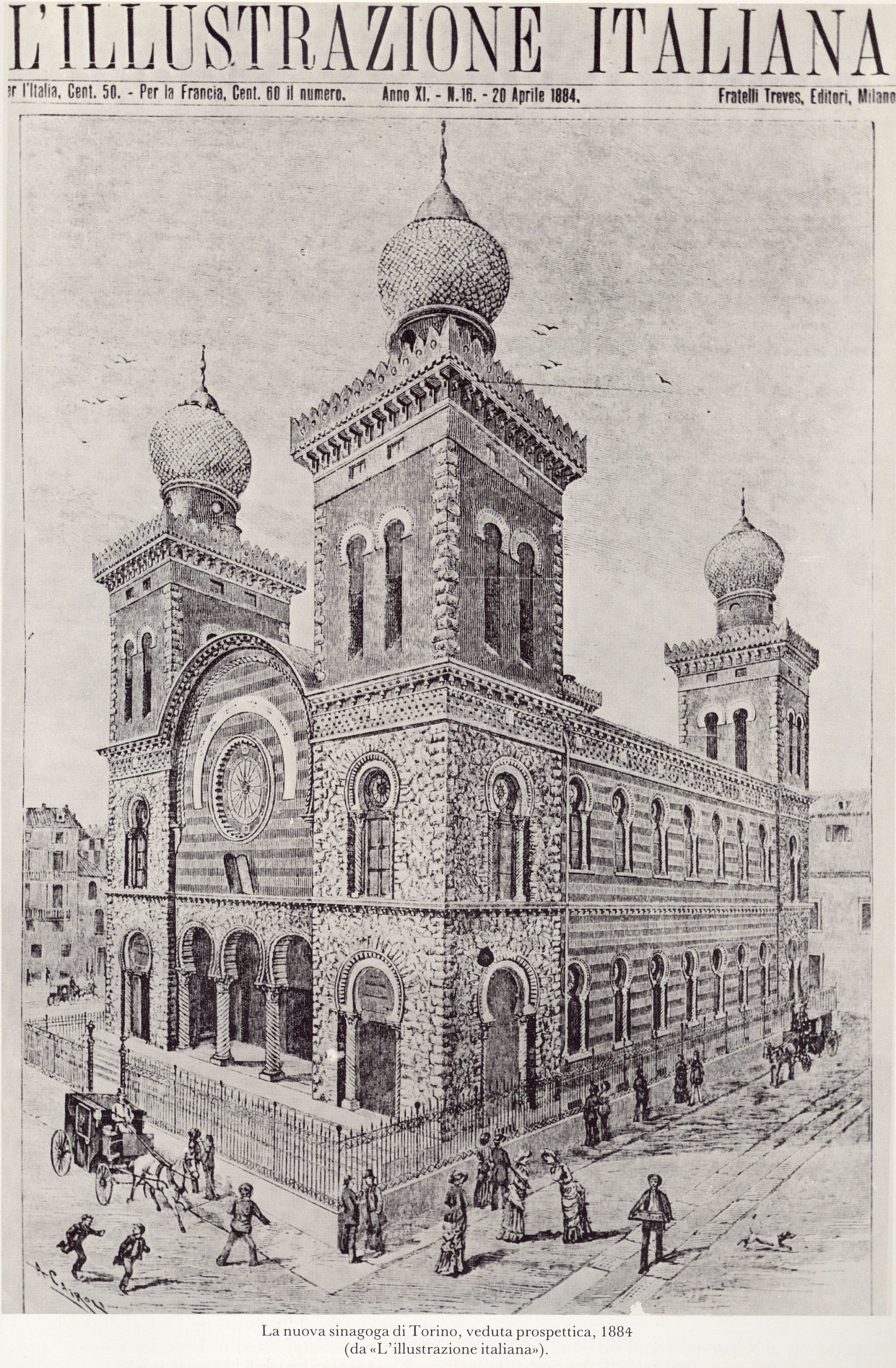TURIN – Goodbye to Alberto Bolaffi. His last project for the Synagogue

Whenever Alberto Bolaffi passed by the Synagogue of Turin, he always noticed that something was missing from it. In the past, there had been two Tables of the Law on the façade, under the big rose window. They were a familiar sight during his childhood until 1942, when a bombing raid destroyed the Temple and its bronze tablets inscribed with the Ten Commandments. The synagogue was rebuilt in the early post-WWII period, but the tablets were lost.
In recent years, Bolaffi made it his mission to restore what the war had destroyed. “He has always been a generous benefactor of the Jewish Community of Turin, and the tablets were one of his final initiatives. It’s unfortunate that the project couldn’t be completed in time, but it’s almost finished,” said Dario Disegni, president of the Jewish Community, in an interview with Pagine Ebraiche, while expressing his condolences for Bolaffi’s passing at the age of 89.
A scion of the founder of the Bolaffi company, Alberto Bolaffi was a leading figure in Italian and international collecting circuits. Born in 1936 and raised among stamps, catalogues and collectors, he inherited the family business in 1961, turning it from a shop into an industrial group. The history of his family is deeply intertwined with that of the Italian Jews in the 20th century. After Italy adopted racial laws 1938, his siblings left the country. However, Alberto’s father, Giulio, stayed in Italy and joined the Resistance under the battle name “Boni”. Following Italy’s liberation, he funded the first weekly publication after WWII, La Settimana nel Mondo (The Week in the World), from which Bolaffi’s philatelic publications stemmed.
In 1946, he reopened his shop in Turin. In the 1960s, he and his son Alberto gave life to new editorial projects such as the Bolaffi Arte magazine and the Weekend magazine. He also promoted a modern art catalogue ahead of its time, venturing into the world of auctions and other business initiatives.
 “Over the years, Alberto cultivated close relationships with the Jewish community. I had the privilege of knowing him for many years and of appreciating his exceptional human qualities and his keen sense of humour”, Disegni added.
“Over the years, Alberto cultivated close relationships with the Jewish community. I had the privilege of knowing him for many years and of appreciating his exceptional human qualities and his keen sense of humour”, Disegni added.
The Tables of the Law project reflects his connection to his Jewish identity. Baruch Lampronti, director of the Terracini Jewish Archive of Turin, took care of the historical and technical side of the initiative. “The original project’s documentation was lost during the bombing of 1942, but we found some photographs from that time, as well as a report by engineer Giuseppe Guastalla describing the two bronze plates bearing the Decalogue in detail, which were placed under the rose window”, Lampronti explained.
Through a philological analysis of the proportions, characters, and disposition of the words, we have been able to rebuild the original model. “We have decided to rebuild it in the same spot as it was before, and we have received consent from the Superintendence.”
The project was entrusted to a specialized foundry in Vicenza and required numerous technical steps and authorizations. It is almost complete. “We would have liked Alberto Bolaffi to be with us for the inauguration,” concluded Dario Disegni. “We will honor his memory when those tables are finally returned to their place.”
Daniel Reichel
Translated by Rebecca Luna Escobar and revised by Chiara Tona, students at the Advanced School for Interpreters and Translators of the University of Trieste, trainees in the newsroom of the Union of the Italian Jewish Communities — Pagine Ebraiche.
